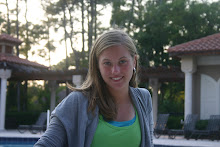Congratulations Adrian for guessing correctly! And Hannah, you were close. Farsi (or Persian) is the national language of Iran...but Iraq is Arabic. Now, why I posted that in the first place. On Sunday morning, our assistant pastor asked us (Sarah, Mary, and Susie) if we were available the next day (Monday, yesterday) to help an elder of our church teach an English class to Iraqi refugees. Mary couldn't because of her babysitting job, but Sarah and I said we would do it. All together, we were working with five women and one man. (One of the reasons our pastor asked us to help: we were female, and so the ladies would be more comfortable.) Our head pastor's wife was also there to help. There were three ladies from Iraq, one from Lebanon (who spoke Arabic, although I'm not sure if that's the national language of Lebanon), and one from Russia. (she was from Russia, but had lived in Uzbekistan for a while.) It was exceedingly helpful that they all spoke the same language, even the Russian woman who knew a little English and a little Arabic in addition to her native tongue. However, none of us knew any Arabic, so it was definitely an adventure. We went over basic English words (table, chair, girl, etc.) and also the correct use of 'this' and 'that'. Some of them got it right away, but some of them didn't. It was really fun to see the hypothetical light bulb turn on when they understood. It was also exciting when all but one of them understood, and then the other four would explain it to them in Arabic. All four, at the same time. :) We then explained to them (with the help of visual aids) how to call the doctor/dentist's office to make an appointment, and how to refill a drug prescription at the pharmacy. One thing they had a lot of trouble with was their birthdate, which as you know, is required by the doctor. They were confused because in Arabic you write the day first and then the month, (which I think makes more sense, anyway) and because they knew the names of the months but not what number they corresponded with, and they wrote the year backwords. If they were born in
1969, they would write 1996. I have no idea why they write the last two letters switched and not the first two, but they do. They also had trouble saying the numbers (like, they would say "November twenty three instead of November twenty third and they would say one-nine instead of nineteen) They knew how to read English fairly well, which is surprising considering how different it is from Arabic. It was really fun to watch them write, because they wrote in Arabic and they wrote from right to left. We also had to teach them how to make the sound a 'p' does because there is no sound like a 'p' in Arabic. They didn't know how to make the sound at all. Sarah and I had a lot of fun. The ladies would say something in Arabic and then laugh. and laugh. and laugh. We would laugh, too, even though we didn't know what was funny. The elder from our church who teaches the class plans to do it all summer, and Sarah and I are planning on helping whenever we can.
This entry was posted
on Tuesday, May 18, 2010
at 5/18/2010
and is filed under
church,
language
. You can follow any responses to this entry through the
comments feed
.
4 comments
Hmm. My question was referring to the people you're working with. I jumped back to talking about them, and it doesn't read quite right. :-/
Tuesday, May 18, 2010 3:06:00 PM
they can do a 'b' sound, although I'm not sure if they use it in Arabic or if they just managed to pick it up when they moved here.
Tuesday, May 18, 2010 4:44:00 PM
that sounds like so much fun! I hope it goes great!
Tuesday, May 18, 2010 5:58:00 PM
Post a Comment
My new favorite quote :)
"Most people, if they have really learned to look into their own hearts, would know that they do want, and want acutely, something that cannot be had in this world. There are all sorts of things in this world that offer to give it to you, but they never quite keep their promise."
~C.S. Lewis
~C.S. Lewis
